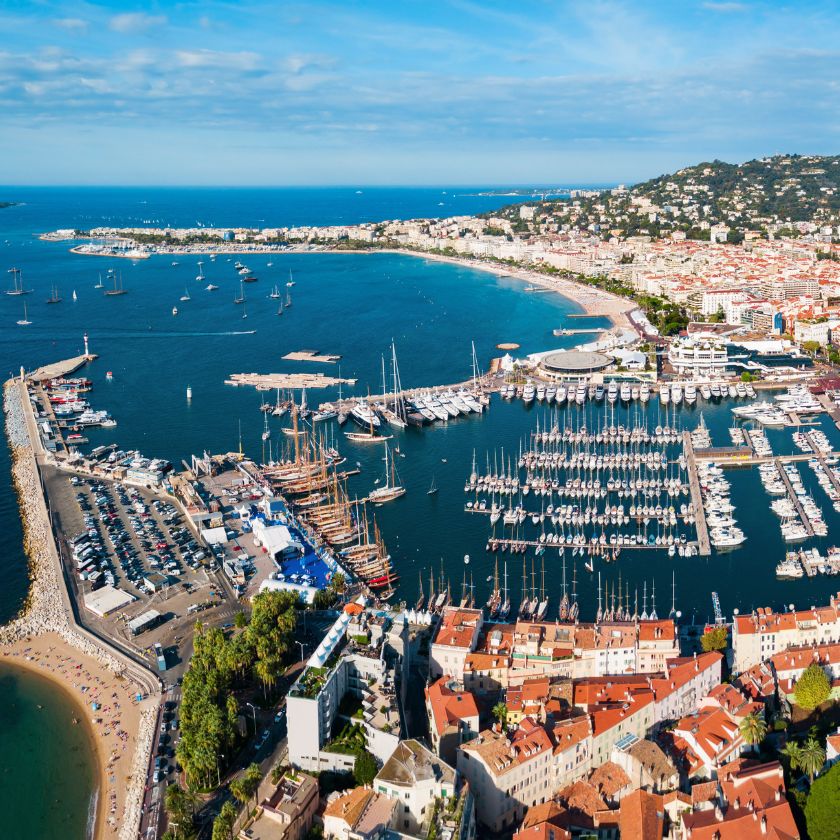By continuing, you agree to receive cookies from the BGYB website. Find out more.

VAT essentials in the Yachting Industry: BGYB Helps You Stay Afloat
Whether you are a charter broker, a yacht owner, or a future client, VAT on charters can be a real headache. And for good reason! It seems to change constantly.

The Tax Puzzle of the Yachting Industry
VAT – Value Added Tax – is a tax imposed by the country where the charter embarks. Each country sets its own VAT rate, which is calculated as a percentage of the total “charter fees”. Some countries even impose additional conditions, further complicating the broker’s job. It is therefore essential to know the exact VAT rate for each country along with any potential exemptions. The choice of embarkation country is a strategic decision for all parties involved. How can you make the most of your vacation budget?How can you secure the best deals on yacht charters?"
France & Monaco: Among the Highest VAT Rates in Europe
In France and Monaco, yacht charters are subject to a 20% VAT rate if the embarkation takes place in these territories. It is important to highlight that this taxation has remained unchanged for many years, ensuring a certain level of stability.
United Kingdom: A Similar Rate
The United Kingdom also applies a 20% VAT on charters, a rate equivalent to that in France and Monaco. With this high taxation on charters, the country ranks among the least attractive destinations for charters in terms of tax costs.
Italy: Leading in High Charter VAT Rates
Italy stands out for having the highest VAT rates in Europe for yacht charters. In Italy, VAT rises to 22%.
Spain: A significant rate
In Spain, it stands at 21%. The authorities require a Charter License, which is not only costly for yachts owners but also time-consuming. The process is particularly lengthy, which may explain the limited number of yachts offers in the Balearic Islands and, to some extent, explain the higher rates in this region.
Caribbean: A Tax Haven for Yachting
In the Caribbean - Barbuda, Antigua, St Martin, St Barth, Grenadines - yacht charters benefit from a major fiscal advantage: a 0% VAT rate. This full exemption applies to most islands in the region, making the Caribbean a prime destination for holidaymakers in search of Vitamin D in winter, while saving money at the same time!
Martinique & Guadeloupe: A Balanced Approach with a Reduced VAT
Unlike most Caribbean destinations, Martinique and Guadeloupe, as French overseas territories, apply an 8.5% VAT on yacht charters. This reduced rate is far more attractive than the mainland French rate while maintaining a legal framework under French jurisdiction.
Special Cases: Complex VAT Legislations to Navigate
· Bahamas: A Two-Tier Taxation System
The Bahamas enforce a unique tax structure for charters, combining multiple levies. Since 2022, all charters are subject to 10% VAT, as well as an additional 4% harbour tax, bringing the total tax rate to 14%. While still competitive compared to European VAT rates, this tax represents an extra cost for charterers compared to other Caribbean destinations where VAT is entirely absent. Despite this, the Bahamas remain a prime yachting destination due to their crystal-clear waters, proximity to Florida, and well-developed yachting infrastructure.
· New Zealand: Chartering Restrictions
New Zealand applies a 15% VAT rate on yacht charters, a relatively high but internationally standard rate. However, beyond the tax implications, the country enforces strict chartering regulations. A yacht can only be chartered for up to 65% of its stay in New Zealand over a 24-month period; exceeding this limit could require compliance with residency rules and additional legal obligations. Furthermore, all commercially operating yachts in New Zealand are subject to national laws, including stringent health and safety regulations. This complex legal framework requires precise operational planning and careful monitoring by local yacht agents.
It is a remote destination, outside the usual yacht charter circuits, which explains the very limited number of boats available for charter in this part of the world.
· Greece: A VAT System Correlated to the Type of Cruise
Greece offers a flexible VAT structure for charters, with several options depending on the duration and type of cruise:
Short-term charters (2-3 days): A standard VAT rate of 13% applies.
International cruises: Yachts with a "General Inspection Protocol for Small Passenger Ships" operating in international waters benefit from a 60% VAT reduction, lowering the effective rate to 5.2%.
Domestic Greek waters cruises: Yachts operating solely in Greek waters with the same protocol enjoy a 50% VAT reduction, resulting in a 6.5% VAT rate.
To minimize costs, the most advantageous option is to register the yacht for international cruises. While this requires additional administrative steps, it remains the best way to optimize VAT costs in Greece.
Make sure to inquire with your broker about the applicable rate for the boat you’ve chosen, as the percentage varies. For safety reasons, brokers or owners usually request the payment of the 13% VAT (overall VAT) until the final amount is confirmed by the authorities. The difference will then be refunded.
Key Destinations: A Global VAT Overview
Beyond the major European destinations and the Caribbean, several countries offer attractive tax regimes for cruise enthusiasts heading to more exotic or off-the-beaten-path locations.
Malta applies an 18% VAT, while Croatia and Norway set their rates at 13% and 12%, respectively. In the Pacific, Fiji, Tahiti, and French Polynesia impose a favorable 5% VAT, boosting their appeal for luxury yacht charters. Australia applies a 10% VAT, while the U.S. Virgin Islands enforce a 12.5% tax. As for the Seychelles, their specific tax framework requires further case-by-case analysis.
Your choice of charter destination is not only based on sailing conditions and idyllic landscapes, but also on the VAT rate, which can have a significant impact on your vacation budget.


